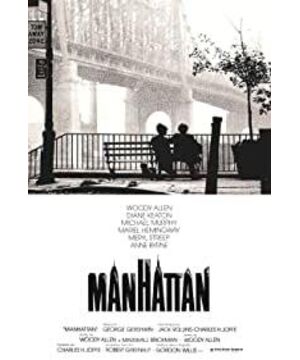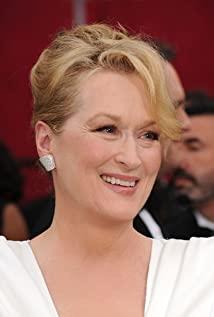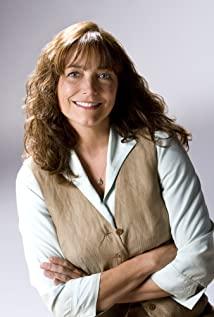The idea for "Manhattan" came about during an exchange between Woody Allen and Gordon Willis during the filming of "Inside the Heart" in the Hamptons. They have dinner together almost every day. One night, Allen came up with the idea of shooting a black-and-white film in Manhattan, treating the city as an extra character. It was also the first time he chose to focus on portraying New York as a major character in a film.
The film is like a love letter to New York, where there are flesh women, pseudo-intellectuals, men in top hats, and avenues to ride down Central Park in horse-drawn carriages. Willis asked for a panoramic shot, using a distorted lens, like those used in military-themed films, to record only an intimate story of love and gain and loss.
On April 25, 1979, when "Manhattan" was released, the negative reaction to Allen from "Inside Down" peaked. In a lengthy article in the August 16 issue of The New York Review of Books, titled "Letters from Manhattan," Joan Didion writes: "Manhattan," "Annie Hall," and "Inwardly Deep." The characters in "Department" are all presented as adults, like the most sensitive men and women during the most prolific years of their lives, but their troubles and their conversations are entirely child's personalities and are " mindless", which also represents a fantasy in adult life.
In "Manhattan," Isaac Davis (Woody Allen) is a TV writer whose wife went from bisexual to gay after marrying him, leaving him for a gay girlfriend. Isaac is with Tracy (Hemingway), a mature and sweet 17-year-old girl who he likes but feels the age gap is too big for a future between the two. He later meets Mary (Diane Keaton), the lover of his best friend Yale (Michael Murphy). Yale is a college professor, married, and bent on writing a book. Isaac fell in love with Mary, but when Yale decided to leave his wife and be with Mary, Mary chose to break with Isaac. Tracy, who continued her life alone, decided to study in the UK. Before she left, Isaac felt that he had lost the most important thing, but it was too late.
Life in New York in 1979 didn't seem very different from what it looks like now. People are indecisive, afraid of loneliness, ridiculed and ridiculed of the absurdity of love and the child's play of marriage, and at the same time they are deeply involved in it. The point is, the anxiety of life is always there.
In the old man's movies, he always likes to set an ex-wife for the male protagonist. In "Manhattan", Isaac's ex-wife, played by Gu Mei, is a neurotic writer. She divorced Isaac for his gay girlfriend and wrote a book after the divorce to publicize the details of their marriage. In his ex-wife's new book, "Blame," Isaac degrades to a freezing point, "his partiality for anger, Jewish liberal paranoia, chauvinism, feigned piety hatred of the secular, with a nihilist desperation." He complained Life, but never a solution, yearning to be an artist but avoiding the necessary sacrifices. Raising the heights of tragedy by speaking of the fear of death at his loneliest, but he's actually a full-blown narcissist. "Through the intensification of contradictions and the development of the plot, we can feel the self-deception of the protagonist from the comparison before and after.
The second emotional line is the emotional entanglement between Isaac and Mary. Mary is a typical female literary youth who often goes to art exhibitions and museums. The one-liners in the film mainly rely on Mary's remarks about art, which represent the director's nonsense against intellectualism. As a result, Manhattan's humor is more tiresome than Anne Hall's, and its ironic points are sharper. The development between the two can also better reflect the selfish feelings of middle-aged intellectuals men and women.
The biggest anxiety is probably the relationship between a 42-year-old middle-aged man and a 17-year-old high school student Tracy. The fragile old-fashioned tuberculosis is eloquent on the surface, and the attitude of a teacher is to instill the concept of love in the girl. His rationality and inner impulses and emotions fight, but when faced with a girl with clear eyes, he is doomed to be defeated. It's not that she is better at managing relationships, it's just that she has a lot less hypocrisy. A 17-year-old girl, determined and sincere, with love and wisdom beyond life. In front of her, Isaac's previous emotions seemed so vulnerable, and he finally relied on a girl to teach him love and trust.
In my opinion, most of the characters in the movie are in an insecure state. Although the sense of security is a matter of individual feelings, its good state enables us to integrate self-consistently and live in harmony with the surrounding environment without sharp conflicts.
Isaac quarreled with his ex-wife many times and tried to stop her from writing anything about their unhappy marriage because he was afraid of destroying his original knowledge and ideas. When he started dating with Tracy, he encouraged the girl to meet more boys at school, get along with them, and even leave himself; after being dumped by Mary, he went to find the girl again, hoping that she would stay. He was afraid of the six-month separation, afraid of the girl's change of heart. He is fragile inside, unable to withstand external shocks. The middle-aged literary woman moves between two men. On the one hand, she flaunts herself and says that she can't be a third party who destroys other people's families. I deserve better. This is also a portrayal of her inner insecurity. They both try to gain a paltry sense of security from their relationship to establish their identity.
In the whole movie, I feel that only Tracey is full of security, a security that radiates from the inside out. Because she always had a firm, gentle firmness in her.
At the end of the film, when Isaac asks Tracy not to leave, he is very soft-spoken, and his facial expression pierces the realization that in that situation he will most likely not get the result he wants. There are many possibilities and choices in love. After so many experiences, in the end, it is not worth the sentence uttered by a 17-year-old girl: You have to have a little faith in people.
View more about Manhattan reviews










